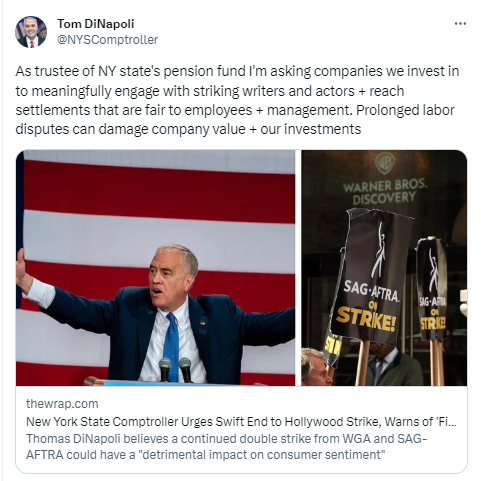State Needs to Supercharge Efforts to
Meet Renewable Electricity Goals
New York State will have to take multiple steps to increase renewable electricity generation in order to achieve the objectives of the Climate Leadership and Community Protection Act. Success will also require State agencies to consistently and proactively identify and address problems, continue streamlining permit and interconnection study procedures, and develop the necessary infrastructure to connect renewable projects to the grid and New Yorkers' homes, according to a report by State Comptroller DiNapoli.
“New York State has rightly pursued an aggressive campaign to reduce greenhouse gas emissions to limit the most dangerous impacts of climate change,” DiNapoli said. “New York’s energy goals are attainable, but they require careful attention and management to address challenges, meet ambitious deadlines and avoid future pitfalls.”
|
Casinos’ Impact on Upstate Local Tax Revenues
From 2017 to 2022 New York’s four licensed casinos brought $176 million in gaming tax revenue to host and regional local governments, but only the three smaller towns that host casinos realized significant fiscal benefits relative to their overall revenue, a report from State Comptroller DiNapoli highlights.
“Casinos are not a magic fix that will solve local fiscal challenges,” DiNapoli said. “While casinos have generated local gaming tax revenue, the impacts vary for the communities that receive such revenues. It’s my hope that this report gives State and local officials a clearer perspective that can help potential host communities avoid the pitfalls that arise with misguided expectations about the public benefits of casinos. They are not a sure bet.”
|
Local Sales Tax Collections Up 3% in Second Quarter
Local government sales tax collections in New York State totaled $5.7 billion in the second quarter of 2023 (April-June), an increase of 3%, or nearly $167 million, compared to the same period last year, according to a report released by State Comptroller DiNapoli. Collections were more robust in the first quarter of 2023, growing 7.1%.
|
Audits
- State Education Department
- Department of Health
- Metropolitan Transportation Authority
- State Board of Elections
- New York City Department of Buildings
- Division of Homeland Security and Emergency Services
- New York State Health Insurance Program
ALSO IN THE NEWS THIS WEEK
Note: Some news links may require a paid subscription.
- New York comptroller releases report detailing revenue impact of state's casinos
- State comptroller: Renewable energy needs to step up the pace
- New York State Comptroller Urges Swift End to Hollywood Strike, Warns of ‘Financial, Legal and Reputational Risks’
- NYC Sales Tax Collections Slow Down as Broadway, Retail Struggle
Comptroller's office to help New Yorkers search for unclaimed funds
X of the Week
Tom DiNapoli @NYSComptroller
 |

